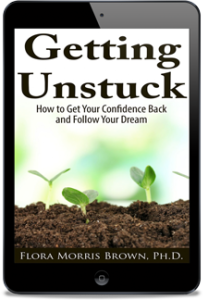
Treat your body like a temple, not a dumpster, and you can increase your happiness.
Scientists have discovered that about half of our happiness is based on factors we can’t control, like genetics and our upbringing. About 8 percent is attributed to circumstances in our lives, our educational level, marital status, and income. The remaining 40 percent is a reflection of our attitude and choices we make, especially the choices we make regarding our bodies.
Under normal circumstances, our bodies house all we need to function as human beings. We were designed to experience happiness. From our brain to every organ and system, we were created to be optimum living machines. We even have the drugs we need already inside of us, and our brain is the chemist ready to fill prescriptions as needed.
Access the natural drugs in your body
So many people spend their health gaining wealth, and then have to spend their wealth to regain their health.
—A. J. Reb Materi
Endorphins, which are three times more powerful at killing pain than morphine, are produced naturally by exercise, listening to soothing music, laughing, crying, and spending time in the sun.
Serotonin helps us have that happy feeling and controls our moods, aiding sleep and preventing depression. Bright light and exercise will increase our levels of serotonin.
Dopamine makes us energetic and alert and improves our decision-making and socializing skills. Eating bananas, foods with antioxidants, almonds, and sunflower seeds are all believed to produce dopamine naturally.
Would you fuel your car with soft drinks and expect it to run? I don’t think so. That’s because you know your car was designed to run on gasoline (for now). Putting anything else in your car will not propel it forward and will likely ruin it.
Even though we have lots of information available about what is good for our bodies, many of us continue to shovel junk in there. Especially when we’re young, we take our bodies for granted and tax them to their limits. Consuming unhealthy foods, neglecting exercise, shortchanging our sleep, and failing to drink enough water not only cause us to be overweight and lethargic, but also make us susceptible to illness and diminish our happiness.
Access nutrients from food
Because my sister Sonja died of multiple sclerosis in 2005, I always pause when I hear anything about this progressive and often fatal disease. One day I passed through the dining room as my youngest daughter was watching a video on her computer about multiple sclerosis. I stopped to listen to Dr. Wahls as she described how she had transformed her health and body after suffering for four years with secondary, progressive multiple sclerosis. When she was confined to a tilt-recline wheelchair, it became very hard for her to make her hospital rounds. Conventional medicine wasn’t working. She was afraid she would be bedridden for the rest of her life. That’s when Dr. Wahls began to study the research in auto-immune disease and brain biology. From what she learned, she decided to get her nutrients and vitamins from food rather than pills and supplements.
Using her Mitochondria Diet, Dr. Wahls recovered her ability to walk easily without a cane and ride her bicycle. Now she is devoting her life to lecturing and research. When she shared her story at a November 2011 TEDx talk, it went viral. Although she is careful to point out that her work has not been evaluated by the U.S. Food and Drug Administration and she does not promise to treat, prevent, or cure disease, she now uses these diets and protocols in her primary care and traumatic brain injury clinics.
Adopt healthy habits to increase your happiness
You may not be ready to adopt Dr. Wahls’ Mitochondria Diet, or any other organized eating plan, but your body will function better and help you maintain happiness when you do the following:
• Cook and consume a diet of fresh fruits and vegetables. Increasing concern for healthier eating and green living has resulted in better choices in major grocery stores and healthier choices in medium-sized stores.
• Gain access to better-quality food. At one time, it was difficult for low-income or more remote communities to have access to high-quality foods because of the absence or scarcity of grocery stores [and ample fast food drive-throughs.] But more and more communities of both high and low income levels are solving this problem by setting up community gardens, engaging in community-supported agriculture, and attracting farmer’s markets.
• Make water your beverage of choice and consume at least eight glasses each day. While there is disagreement over whether purified or filtered water is better than tap water, just choose your favorite and drink it regularly. It has become customary throughout the U.S.A. for commuters to carry a bottle of water with them.
• Exercise at least three times a week. Every day would be better. Walking is the easiest and least expensive exercise. Getting a walking buddy makes walking more fun. and keeps me consistent.
• Breathe deeply and consciously, sending oxygen throughout your body. Deep breathing helps your body get rid of toxins and helps reduce stress.
• Avoid sugar, caffeine, and alcohol. Not only do these provide no nutrition, but all are addictive and can impair our motor and other skills. Because I’ve been a lifelong coffee drinker, I was surprised recently to discover that I’m not enjoying coffee as much as I once did. I think exercise and healthier eating are making coffee less welcome in my body and less satisfying to my taste buds. (I’m still working on this area however.)
• Start your day with a healthy breakfast. Not only is it the fuel that gets you going, but it also gives you energy, enables you to think better, and prevents you from binging, when you’ll eat anything to satisfy that late morning/early afternoon hunger.
• Avoid eating after 7 p.m. This one is a challenge for me because I admit I love to snack in the evening.
You certainly wouldn’t trash a place you hold dear or for which you have reverence. You have been entrusted with the precious gift of a body. There is no one-size-fits-all when it comes to taking care of it. Invest time to research what combination of food, living habits, and exercise works best for you.
We spend a lot of time talking about attitudes, but without taking care of our bodies, we’re missing a critical component. Take loving care of your body, and it will take care of you, resulting in the greatest benefit of all—happiness.
Like you, I’m still working on adopting healthy habits. Which habits are your greatest challenge? What can you add to the healthy habits list?
[feature_box style=”23″ only_advanced=”There%20are%20no%20title%20options%20for%20the%20choosen%20style” alignment=”center”] 
This is an excerpt from Chapter 4, Making Happiness a Way of Life in Color Your Life Happy: Create Your Unique Path and Claim the Joy You Deserve, 2nd edition. Visit https://coloryourlifehappy.com to to learn more about the book before it is released on Amazon and other major booksellers. [/feature_box]




 Follow
Follow


If we pay attention, our bodies are giving us signals all of the time as to what they want and need. Unfortunately, it is easy to tune them out or misinterpret the messages we are receiving. When we don’t listen, our bodies can sometimes try yelling at us to get our attention. The trick is to hear them before we upset them.
You’re so right Linda. about how easily we tune out our bodies’ messages. It requires first awareness of these messages, and then commitment to heeding them.